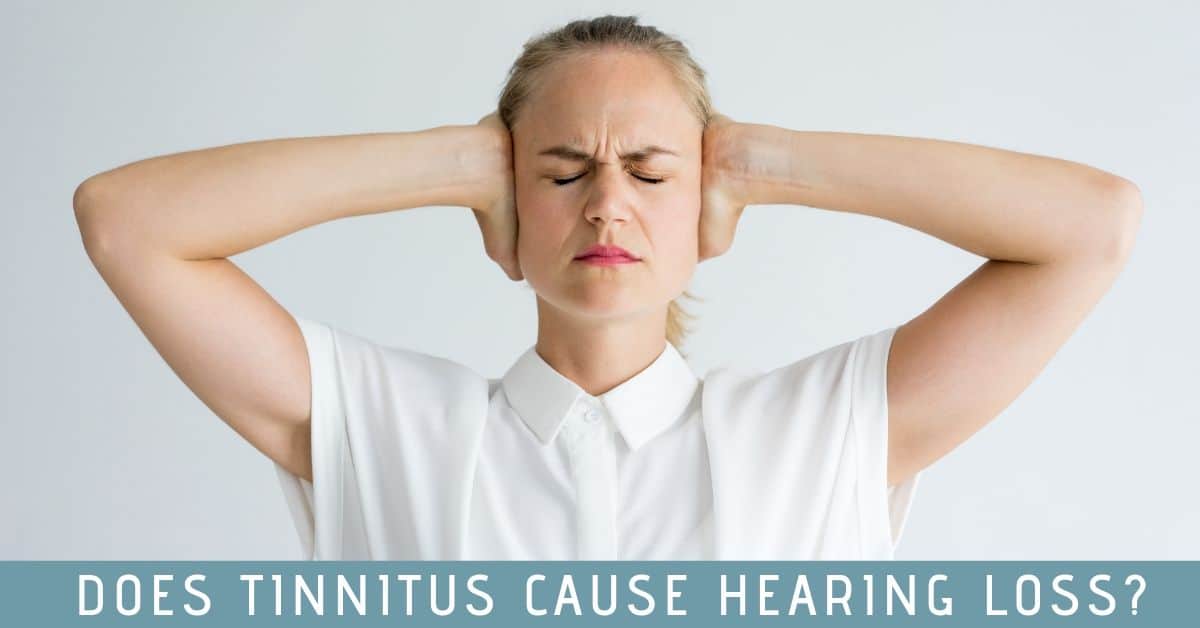
- Common Misconceptions That Delay Hearing Loss Diagnosis - June 6, 2025
- Signs Your Earwax Buildup Needs Professional Attention - May 29, 2025
- Preparing for a Hearing Test and What You Should Bring - May 16, 2025
Do you struggle with tinnitus? If you’ve been living with that annoying ringing or buzzing in your ears, you may be worried that it will start to affect your hearing health. While it’s a myth that tinnitus causes hearing loss, the two conditions are very closely related, and if you have tinnitus you probably also have hearing loss.
What is Tinnitus?
Are you hearing a ringing, buzzing, whistling, rushing, hissing, roaring, or humming sound in your ears? Do you only hear this sound when everything else around you is quiet, and there’s no external sound? These sounds can be low pitched or high pitched, and it can affect one or both of your ears. Maybe you’ve thought that you’re going crazy since no one around you is hearing these sounds, but having tinnitus is a normal condition that affects millions of people around the world.
Tinnitus is quite common, and affects roughly 15 – 20% of Americans. Tinnitus often goes hand in hand with age-related hearing loss or noise induced hearing loss. These types of hearing loss are caused by damage to the delicate cells in the inner ear. Once these cells are damaged, you experience hearing loss, and this hearing loss is often accompanied by tinnitus. Even though these cells are damaged, they sometimes still send random electrical signals to your brain, even if they aren’t sensing any sound waves in the environment around you. The brain interprets these signals as sound, so you experience sound even though there aren’t any sounds happening around you. Other causes of tinnitus include an ear injury or infection that damages the cells in your ears. Tinnitus often gets worse as time passes, and will also be more noticeable at times when you’re feeling stressed or sleep deprived.
Tinnitus and Hearing Loss
Tinnitus doesn’t cause hearing loss, but they often occur together since they both have the same cause. There is no cure for tinnitus, but there are treatment options available. If you have hearing loss and tinnitus, treating your hearing loss is the best thing you can do for your tinnitus. You’ll help your ears make sense of the sounds happening around them, and reduce your experience of tinnitus. Many of today’s hearing devices also have tinnitus treatment programs that help you manage your tinnitus.
Treating Tinnitus
Tinnitus can interfere with your life in profound ways. It can make it difficult to focus on tasks, hear quiet sounds in the environment, and get to sleep at night. Tinnitus is usually louder when everything around you is quiet, and it works in a negative feedback cycle. The more tinnitus you experience, the more stressed you’ll be, and as you get more and more stressed, you will hear more tinnitus. It will keep you awake at night, and restless during the day. Treating tinnitus is important not just for your hearing, but also for your overall health and wellbeing.
Sound Therapy Programs
Ready to treat your tinnitus? The most effective tinnitus treatment option is sound therapy. Many of today’s hearing aids have sound therapy programs, and these are designed to mask the tinnitus sounds and bring your relief. Your hearing health specialist will calibrate the program to match the pitch and intensity of your tinnitus, and it will play white noise, pink noise, nature sounds, or even music from your personal music collection to mask tinnitus sounds, and fade them into the background. You’ll be able to get through your day without hearing your tinnitus or being stressed, and these programs can also help you get a great night’s sleep and wake up refreshed in the morning.
Hearing Aid Specialists of the Central Coast
If you’ve been experiencing tinnitus, or struggle with both tinnitus and hearing loss, visit us today at Hearing Aid Specialists of the Central Coast. Our hearing health specialists will test your hearing to determine exactly which sounds you’re missing. We’ll also test your tinnitus, and recommend the hearing aids that will effectively treat both your hearing loss and your tinnitus. Don’t let your tinnitus take charge, disrupt your life, keep you from doing the things you love, or stop you from enjoying the little things in life. Invest in your hearing health, and learn how to manage your tinnitus.
